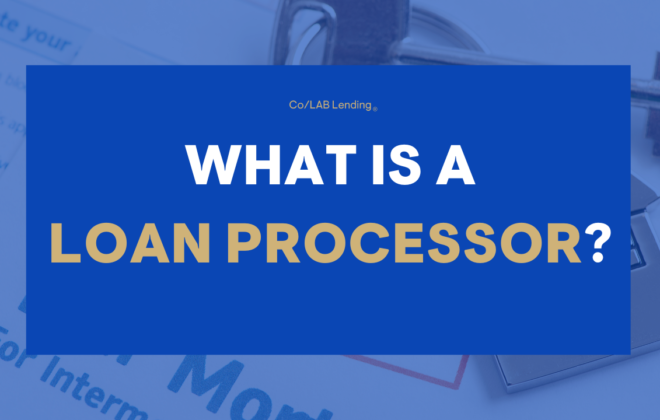Exploring Retirement Saving Plan Options for Self-employed Business Owners
.
Let’s talk about what it means to be a self-employed worker really quickly. A self-employed worker is anyone that is the owner of a business and earns their living by working for themselves. They are not an employee or a shareholder in anyone else’s business. This could mean you are an independent contractor, a freelancer or even own and operate an online business. Let’s face it, being self-employed and saving money for retirement is tough. It’s even more difficult when you’re a self employed worker.
If this is you, you don’t work a typical 9 – 5 for someone else. So you probably already know that you can kiss the idea of a standard 401K with matching funds goodbye. Instead, you will have to find another way to plan for your future retirement. That’s the bad news. The good news is that there are plenty of other ways you can save.
Exploring Retirement Saving Plan Options for Self-employed Business Owners
Saving for retirement is extremely important and as mentioned above it’s tough. The easy thing to do is to make up excuses as to why you can’t save. But, there are a few good reasons why you should.
- You can’t rely on social security. According to the Social Security Administration, if you have average earnings, your social security retirement benefits will only replace about 40 percent of your income. You will need to supplement your benefits.
- You don’t don’t want to burden your kids. (At least we think you don’t) Even when you are older you may want to spend as much time with your kids as possible. But, don’t you want that to be your choice and not because you are forced to live with them because you can’t afford your monthly expenses?
- You do have access to savings options. Hey, what better reason to save than because you can. It’s what this blog is about.
- The compound effect. This is another great reason to start saving now! Also known as making your money work for you with compounding interest. The earlier you start the more your money can work for you.
Getting Started with Retirement Saving Plans
The IRA
There are two different types of IRAs that have a key difference, taxes:
- Roth IRAs have tax free withdrawals because you pay taxes on your contributions.
- Traditional IRAs allow you to deduct contributions now and pay taxes later, when you withdrawal.
IRAs can be a great option if you are just getting started with a savings plan because they are easy to set up. You also don’t have to be self-employed to take advantage of them. What that means for you is that if you currently do contracting work on the side and eventually want to do that full time you can start saving in the IRA now.
Both types of IRAs have a maximum contribution limit of $6,000 annually if you are younger than 50 and if you are older than 50 the maximum catch-up amount is $7,000.
Simple IRA
This type of IRA is designed for small-business owners that have fewer than 100 employees. SIMPLE stands for savings incentive match for employees. One of the main benefits to small business owners is that they are more simple than a 401(K). Employers can either decide to match up to 3% of an employees contributions or decide to contribute themselves a flat rate of 2% of the employees salary whether or not the employee chooses to be part of the plan or not. Maximum contributions in 2019 are up to $19,000 annually ($19,500 for 2020) and if you are over 50 you can contribute up to $25,000.
SEP IRA
Like the Simple IRA, SEP (Simplified Employee Pension) IRAs are designed for self-employed business workers who have employees, even if you are your only employee. Unlike the Simple IRA, the employees cannot make contributions. Instead, only the employer can contribute. They also have a higher annual contribution limit than standard IRAs. You can either save upto a max of $56,000 a year or 25% of an employees pay – whichever is less. (2019)
Solo 401(K)
Solo 401(K) retirement plans are unique in that they are designed for employers that do not have any full time employees. The business owner and spouse are both allowed to contribute to the plan and the contributions can be tax deductible. (Assuming your spouse earns income from the business you own.) Like the SEP IRA you can contribute a total of $56,000 annually if under 50 and up to $62,000 annually if older.
HSA
HSA or Health Savings Account is generally thought of as a way to save for medical expenses. But, you may not know that many HSA accounts have an option that allows you to invest the savings money through a stock brokerage. Just like any other investment the funds you put away to this account can grow in size over time and you can access them just any other account for retirement.
Tips For Saving For Retirement
Consider Setting Up Auto-saving
Digital technology has made saving easier than ever. If you can afford it, set up automatic monthly withdrawals from your banking account that go directly into you retirement fund.
Save Consistently
Self employed borrowers income can fluctuate from month to month. Decide to set aside a certain amount each month like 10%, 15%, or 25% of the income each month. When the time is right move that amount into your retirement account. That could once a year or it could 4 times a year. You decide to move the saved money when you are comfortable.
Seek Professional Advice
There is no denying that planning for your future needs to begin as soon as possible. Even if you haven’t started yet it’s not too late. But, remember the earlier the better. Before you do anything, you should always consult with a professional financial advisor. They can evaluate your specific situation and help you determine what plan would work best for you.
Saving for retirement is tough. For self-employed workers like yourself it can seem like a daunting task but we’re certain that with a little planning and the right professional advice it’s not impossible.
Good Luck!
Mortgage Consultation Today!
Tags In
Categories
- Credit (4)
- FHA Loans (3)
- Finances (3)
- First Time Home Buyers (6)
- Grab Bag (7)
- Home Technology (1)
- Homebuying Tips (17)
- Inspiration (1)
- Insurance (3)
- Interest Rates (3)
- Loan Process (1)
- Mortgage Financing (14)
- Motivation (1)
- News (1)
- Press Release (8)
- Renovation (2)
- Self Employed (1)
- Tips & tricks (1)
- Uncategorized (134)
- USDA Loans (1)
- VA Loans (2)




